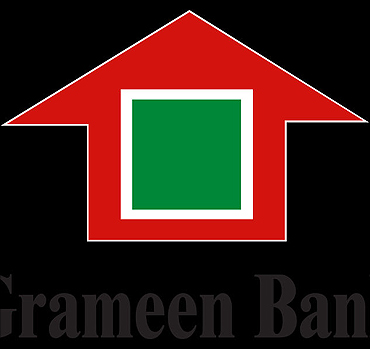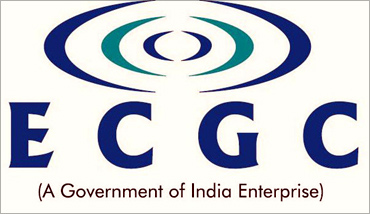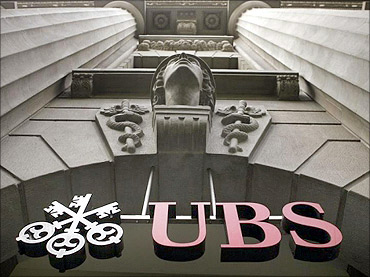Photographs: Reuters
Central bank
A central bank, also called reserve bank, is mainly tasked with managing the country's interest rates and controlling the flow of currency.
It also regulates the commercial banking system and lends money to other banks. While most central banks are government owned, some have mixed ownership. Sweden was the first country to establish a central bank, in 1656.
Most central banks operate as independent bodies to avoid political interference.
There's more to banks than banking
Image: Commercial bank is a type of financial institution and intermediaryPhotographs: Reuters
A commercial bank offers transactional, savings, and money market accounts apart from accepting time deposits.
Although majority of banks provide both commercial and retail banking services, commercial banks can differ from retail bank as they provide financial services directly to their customers.
While commercial banks accept deposits and provide loans and other such services, their main role is to lend money to businesses and accept deposits. State Bank of India is a prime example of a commercial bank.
There's more to banks than banking
Image: Grameen Bank is a community development bankPhotographs: Reuters
Community development banks are set up with the help of financial institutions, savings associations or grants with the aim to provide loans and mortgages to low- and moderate-income families and communities. Apart from loans and mortgages, these banks also provide checking and savings accounts, credit cards and other retail banking services.
Grameen Bank of Bangladesh, founded by Muhammad Yunus, is a community development bank. It has now diversified into more than 24 for-profit and non-profit companies.
There's more to banks than banking
Image: Credit union is a cooperative institution owned by membersPhotographs: Reuters
Credit unions are financial institutions formed, owned, managed by their members with the aim to offer loans at lower interest, fewer service charges and higher savings rates.
Credit unions are not-for-profit cooperatives run by volunteer boards, and are usually smaller than banks but there are credit unions that have billions of dollars in assets and several thousand members.
The Navy Federal Credit Union in the United States is the biggest credit union in the US.
There's more to banks than banking
Image: Custodian banks safeguard financial assetsPhotographs: Reuters
A custodian bank is a financial institution that holds and safeguards a company's or an individual's financial assets, such as stocks or bonds, jewellery and even equities.
Custodian banks also have to ensure the ability to grant excess to customers to the assests as well as provide current value of the assets to the customers.
These banks are known as global custodian banks if they are safeguarding the assets in several countries around the world through their own branches or through local banks.
Custodian banks are not supposed to carry out commercial or retail banking, such as loans, mortgages, ATMs, etc.
The Bank of Ireland Securities Services is one such bank.
There's more to banks than banking
Image: Depository bank provides stock transfer and agency servicesPhotographs: Reuters
A depository bank holds funds or securities deposited by individuals or companies. In the United States, a depository bank provides all services connected to stock transfer and depository receipt programmes.
Its functions can include arranging a customer to accept deposits of ordinary shares, issuing negotiable receipts to back up the shares and exchanging and distribution of dividends.
There's more to banks than banking
Image: Export credit agancy is a private or quasi-governmental institutionPhotographs: Reuters
Export credit agency facilitate trade between nations by offering financial assistance to exporters. The assistance is generally supported by the government, and its aim is to keep the private exporters financially viable.
A good part of the deal is to help those exporters who trade with developing countries that pose greater financial risk.
Most countries in the developed world and many in the developing world have one export credit agency, either backed directly by the government or operated as part of the government department.
Export Credit Guarantee Corporation of India is an export credit agency.
There's more to banks than banking
Image: Unlike commercial banks and retail banks, investment banks do not take depositsPhotographs: Reuters
An investment bank helps companies and governments raise money through the issuance of securities by working as an agent of the company or the government.
Investment banks also have broker and dealer functions and work as advisors to customers. They also play an important role in mergers and acquisitions, restructuring of companies, trading of derivatives, foreign exchange, commodities and equity placements.
Unlike retail banks, investment banks do not give loans individuals nor accept deposits from them. Credit Suisse is an example of an investment bank.
There's more to banks than banking
Image: Companies that have set up industrial banks include UBSPhotographs: Reuters
Industrial loan companies are subsidiaries of big corporations whose initial purpose was to provide loans to low- and middle-income workers who couldn't get such loans from banks.
Industrial loan companies have been around for nearly 100 hours, and are now primarily owned by big financial companies, such as Goldman Sachs, Merrill Lynch and American Express. Companies set up by these financial giants have considerable assets and access to capital.
Some industrial loan companies are as big as the largest financial institutions in the United States, and have now branched out into mortgage and business lending.
Companies that have set up industrial banks include UBS, General Electric Co., General Motors, Merrill Lynch & Co. Inc., Morgan Stanley and American Express Co.
There's more to banks than banking
Image: Islamic banks prohibit usuryPhotographs: Reuters
Islamic banking refers to a system of banking or banking activity that is consistent with the principles of the Shariah (Islamic rulings) and its practical application through the development of Islamic economics.
Shariah prohibits the payment or acceptance of interest charges (riba) for lending and accepting of money, as well as carrying out trade and other activities that provide goods or services considered contrary to its principles.
Islamic Banking is growing at a rate of 10-15% per year. It is estimated that $822 billion worth of Shariah-compliant assets are managed around the world. Bank Mlli of Iran is one of the largest Islamic banks.
There's more to banks than banking
Image: Merchant banks are the original 'banks'Photographs: Reuters
Merchant banks, sometimes said to be wholesale banks, primarily deal with other merchant banks and other large financial institutions, and manage banking needs of international finance, long-term company loans and stock underwriting.
The main area of merchant banks is stock underwriting. A company planing to raise money from the market uses a merchant bank to underwrite the whole process. It decides the number of stocks that need to be issued, the timing and the price.
The bank is also in charge of all formalities and marketing. For big stock offerings, many merchant banks join hands, with one being the main underwriter. Merchant banks do not deal with retail banking.
Merchant banks are in fact the original "banks". JP Morgan was one of the first merchant banks.
There's more to banks than banking
Image: Offshore bank is a bank located outside the country of residence of the depositorPhotographs: Reuters
An offshore bank is a bank located outside the country of residence of the depositor, typically in a low tax jurisdiction (or tax haven) that provides financial and legal advantages.
Generally speaking, an offshore bank can be any bank that is based outside the country. Offshore banks provide all the services the local banks provide.
Offshore banks located in places like Switzerland, Cayman Islands or Luxembourg are sought-after by wealthy citizens, organized crime, tax evaders because many of these banks are not obliged to inform authorities about existing accounts.
The term "offshore banking" comes from the Channel Islands, which is off the coast of the United Kingdom.
There's more to banks than banking
Image: Sarasin is a private bank based in SwitzerlandPhotographs: Reuters
At one time, private banks were financial institutions that were not incorporated and were owned by either an individual or partners. But now most have become incorporated companies.
Nowadays, most top banks, such as Citibank, Barclays and RBS, offer private banking facilities. Private banking, obviously, does not come cheap. To be a customer of JP Morgan Private Bank, which reportedly advises about 40 per cent of individuals on the Forbes' Billionaire list, a client needs to have more than $15 million in assets to invest, or a net worth of around $35 million.
These banks have a long tradition in Switzerland, dating back to at least the revocation of the Edict of Nantes (1685).
Sarasin Bank of Switzerland is one such example. Private banking also has a long tradition in the United Kingdom, where Coutts & Co has been in business since 1692.
There's more to banks than banking
Image: Banking is generally a highly regulated industry.Photographs: Reuters
Banking is generally a highly regulated industry, and government restrictions on financial activities by banks have varied over time and location. The current set of global bank capital standards are called Basel II.
In some countries such as Germany, banks have historically owned major stakes in industrial corporations while in other countries such as the United States banks are prohibited from owning non-financial companies.
In Japan, banks are usually the nexus of a cross-share holding entity known as the keiretsu. In Iceland banks had very light regulation prior to the 2008 collapse.
















article